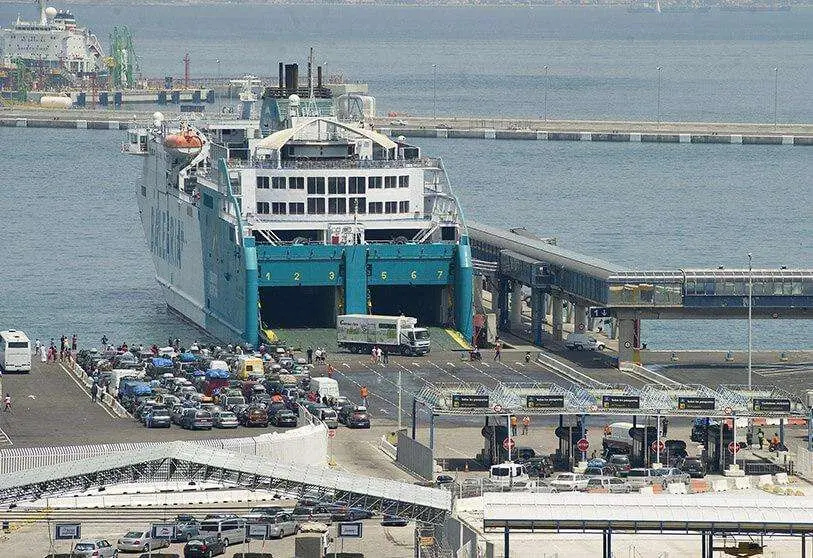Marhaba 2022: 28.000 vehículos durante el primer fin de semana de julio

"It's an Operation Crossing the Strait like we've never seen before," says Carlos Morales, spokesman for the Unified Police Union. More than 28,000 vehicles crossed the borders from Spain to Morocco during the first weekend of July, which was also the first weekend of the school holidays.
The situation put the organisation of the largest holiday transit operation between Spain and Morocco, which returns after a two-year interruption due to the pandemic and the diplomatic crisis, to the test. The busiest route is once again the one from Algeciras to Tangiers or Ceuta, which in the case of the autonomous city saw delays of up to 5 hours, according to local sources.
According to police sources in the autonomous city, during the three-day weekend of 2 and 3 July, a "perfect storm" was created during which adverse conditions accumulated for the smooth running of the OPE. Travellers and authorities point out that the proximity of the Eid-al Adha festival, being the first OPE in two years, new health controls or the sale of "closed" tickets by the shipping companies are some of the ingredients that formed traffic jams and long queues of cars in the ports of the bay of Algeciras, Motril, Ceuta or Melilla.

The Unified Police Union, through its spokesman, also regrets the fact that the police forces have not been reinforced for this operation. Carlos Morales, representative of the police union told Atalayar that the lack of personnel in the port police added to the negative effect this weekend.
The Association of Friends of the Moroccan People, through its president, Mohamed Alami, informed Atalayar that it is preparing a complaint to the public prosecutor's office about the poor organisation of this edition of the OPE. "We are gathering evidence and testimonies about what happened this weekend. It was chaos, there was nothing prepared," explains the president of the association that represents a large part of the Moroccan community in Spain. "People queued for 12 hours, without water, without food, without toilets and scorching in the sun", denounced Mohamed Alami. According to the Association of Friends of the Moroccan People, much of the disorganisation is due to the sale of closed tickets by the shipping companies, something that prevents flexibility when travelling and which would have hindered the passage of the thousands of vehicles that crossed into Morocco on 1, 2 and 3 July.
For its part, the government of Ceuta announced on Monday morning, 4 July, that it would implement "a series of complementary measures to deal with the emergency that has arisen as a result of the long waiting times that are occurring in the transit through the Tarajal border", according to a communiqué from the regional government. The authorities of the city of Ceuta are expected to distribute "hydration bags" with bottles of water and isotonic drinks for drivers and passengers, in addition to installing new tarpaulins to provide shade at the rest and waiting points around the roads and crossing points. The Government of Ceuta claims to already have a special Red Cross device in place at the place known as the "Loma Colmenar esplanade" to assist in case of any unforeseen circumstances.

According to sources from the Ceuta Red Cross, from Saturday afternoon until midday on Monday 4 July, 150 people with symptoms of sunstroke or dehydration were attended to. The Red Cross system put in place has an ambulance and 10 nursing volunteers, which according to the head of the autonomous city, Isabel Brasero, so far have been sufficient to meet the needs of this first large wave of travellers. "It hasn't been worse than other years, not better either. The numbers have been more or less as expected. Every year there are some peaks that are similar to this weekend", says the head of the Red Cross to Atalayar, taking the heat off the matter. "If more resources are needed, the system will be expanded," adds Brasero. She concludes that, if there have been longer queues or delays this year, it is largely due to the new health control measures that were put in place because of the COVID-19 pandemic.
Operation Crossing the Strait was organised between the Spanish and Moroccan authorities, who, after signing a common cooperation roadmap on 7 April, resumed normal diplomatic relations. It is expected that 2022 will equal or exceed the figures of 2019, which means more than 3 million passengers moving between Spain and Morocco.








